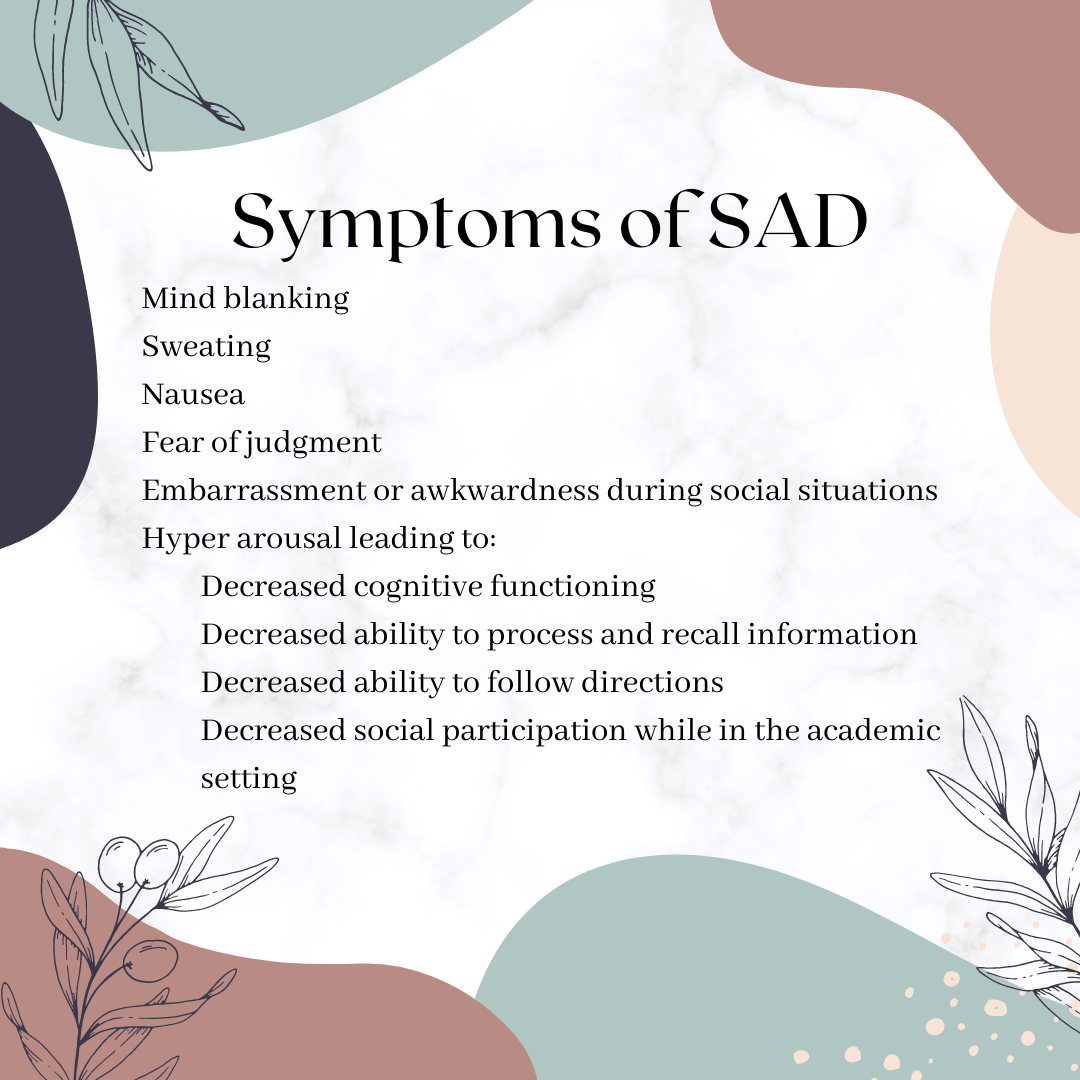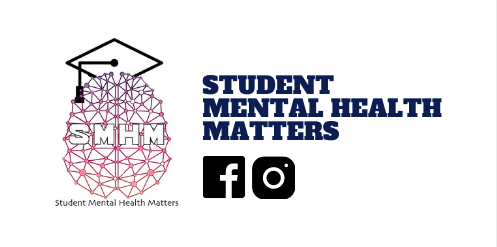
Social Anxiety Disorder
Challenges & Solutions For Academic Performance
What is Social Anxiety Disorder and How Does it Impact Students?
Social anxiety disorder (SAD), also known as social phobia, is a condition in which an individual suffers from an intense fear of being judged, rejected, or negatively evaluated in social or performance situations (ADAA, 2018). In 2017, approximately seven percent of American adults were diagnosed with SAD with a higher prevalence in women than men (National Institute of Mental Health [NIMH], 2017).
Students with SAD can struggle with being in high alert during social situations which causes:
- decreased cognitive functioning
- decreased ability to process and recalling information
- decreased ability to follow directions
- and decreased ability to participate socially within the academic setting
What Does All of That Mean for Student Academic Performance?

- Have you ever been so anxious while in class that you couldn't understand the directions for the assignment?
- Have you ever had mind blanking right before a presentation or during a test?
- Have you ever decided to work on a group project alone because you didn't want people to judge you if you couldn't keep up?
- Have you ever shown up late to class and either decided not to go to class that day or you walked into the class but immediately started to worry what other people thought of you for being late? Those feelings can lead you to start showing up to class far in advance so that you're one of the first people to get to class.
- Do you wear headphones or look down at your phone while passing people in the hallway because you're fearful you'll have to make small talk?
- Do you avoid or make up excuses for why you can't attend school social gatherings or clubs?
All of these issues, when left unaddressed can lead to
- Students feeling overwhelmed with the idea of attending school
- Development of negative coping mechanisms as a form of self-medication (e.g., alcohol, cigarettes, avoidant behaviors)
- Poor academic success which can lead to premature drop out of school
Although, it is apparent that students with SAD can have difficulty functioning, within the school setting, there is still a large number of students that do not seek out the appropriate help. Reasons for not seeking help include stigma, fear of being discriminated by their peers or the faculty/staff at their school, fear of having to disclose their conditions to multiple people, or the belief that their mental health condition isn't worth getting help.
This online resource was created to help those that may be reluctant to disclose their disability but are looking for an easily accessible, free online resource that can help foster positive coping strategies (solutions).
Think You May Have SAD?
Watch The Video Below to See if You Identify With Any of the Behaviors Presented
The YouTube video developed by Brainy Dose highlights 15 things people with SAD can identify with and understand.
Did you identify with any of the 15 behaviors?

